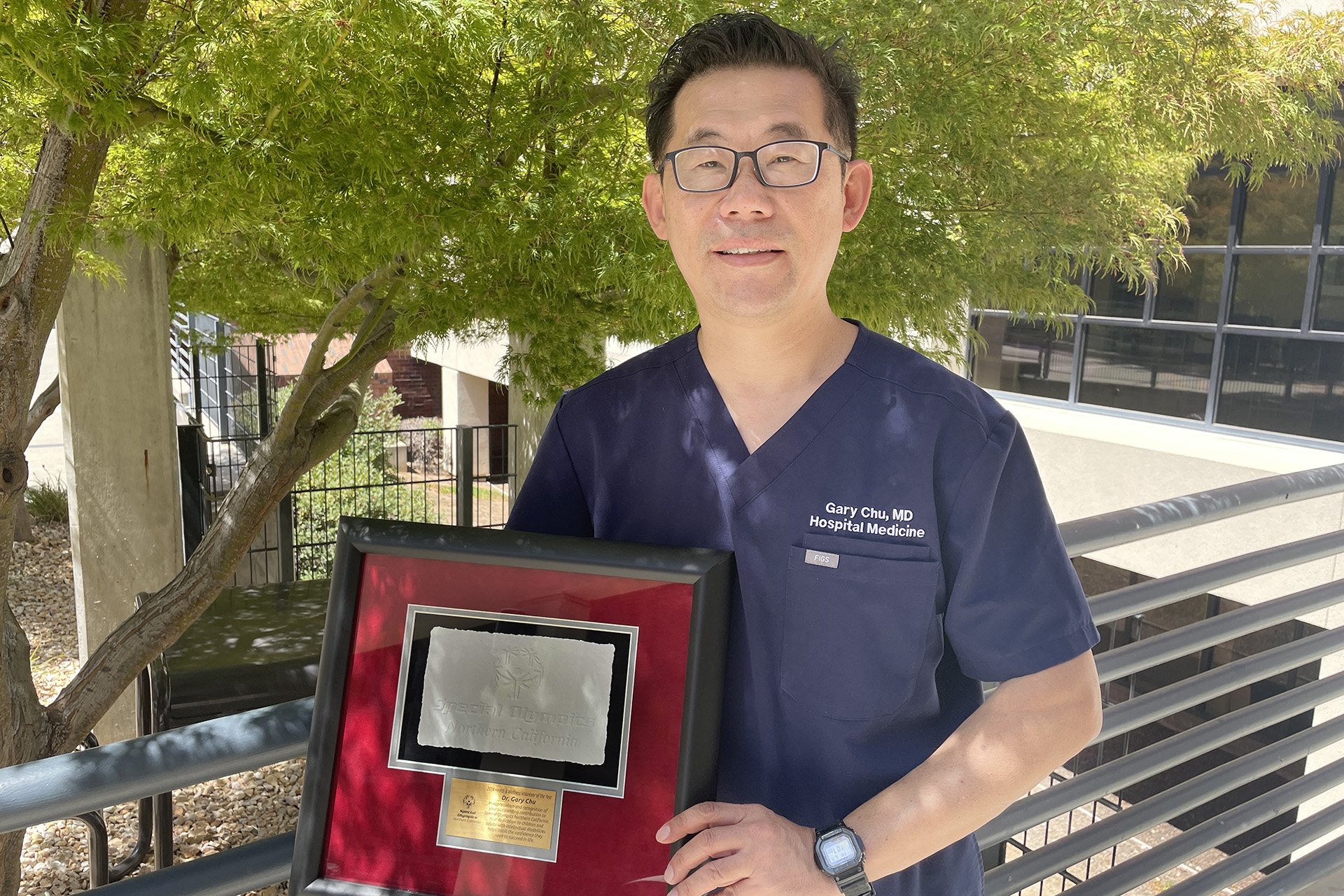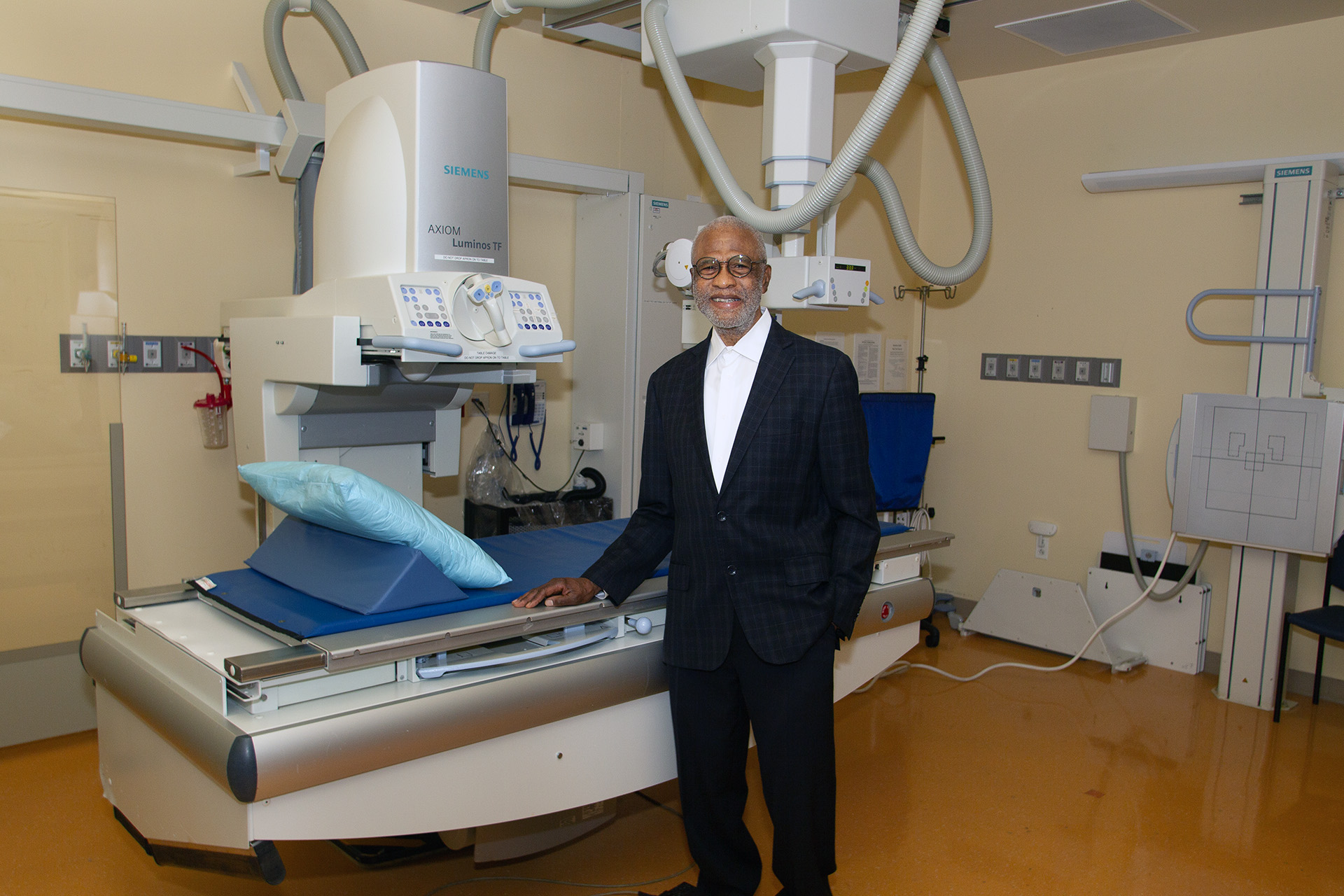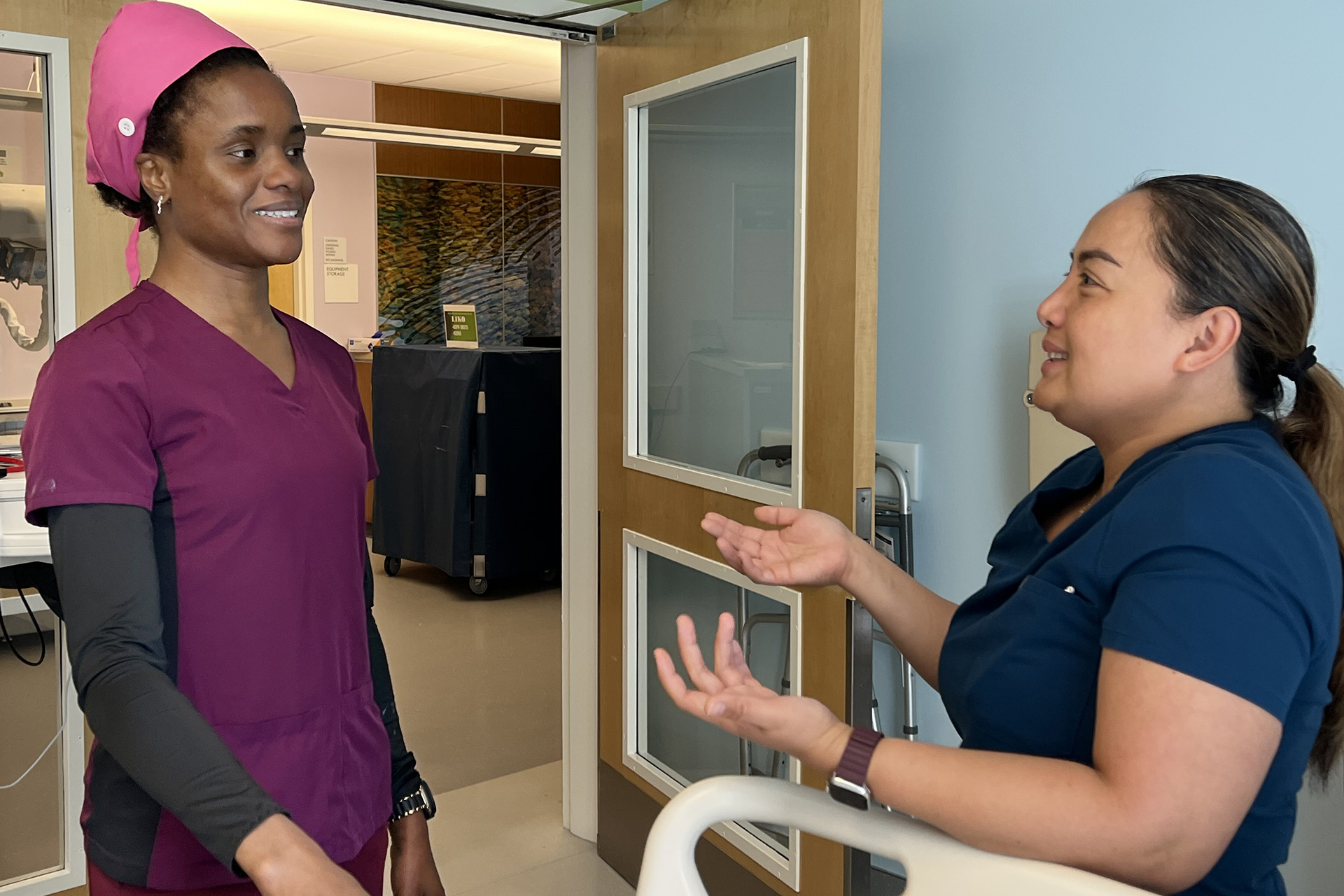Gary Chu, MD, was recently honored with the 2025 Health and Wellness Volunteer of the Year Award from Special Olympics Northern California for his work keeping athletes safe and healthy.
The award is given to a volunteer who has made significant contributions to the health and wellness of Special Olympics athletes who compete in soccer, swim, golf, tennis, and 7 other sports.
Dr. Chu, who works in Hospital Medicine at the Kaiser Permanente South Sacramento Medical Center, started volunteering with Special Olympics when he was in high school in Southern California. Today, he is the nonprofit organization’s medical advisor and clinical director. He was presented with the award during the opening ceremony of the 2025 Summer Games, held in late June at Santa Clara University.
Volunteering ‘the right thing to do’
“Dr. Chu is always looking for ways to get his network involved with Special Olympics programming,” said Matt Cohen, chief program officer for Special Olympics Northern California. “He never hesitates to travel even if the event is far from his home. He is a patient, kind, and intelligent human, who sees volunteering with Special Olympics not only as an honor, but the right thing to do.”
About 12 years ago, he began volunteering with Special Olympics in Northern California after speaking with a colleague, Bill Marinelli, RN, a longtime volunteer with the organization who is now retired from Kaiser Permanente.
Special Olympics has more than 20,000 volunteers who help at the hundreds of competitions throughout the year. The biggest event is the Summer Games, sponsored by Kaiser Permanente, with more than 1,000 athletes and coaches from 35 counties participating.
In his roles with the Special Olympics, Dr. Chu has a range of duties, including organizing, recruiting, and training health care providers to staff medical teams at the Special Olympics’ games and tournaments.
Marinelli said Dr. Chu had the foresight to invite medical students to volunteer
“What a smart thing for the future. Most doctors won’t have experiences like this, working with this population,” Marinelli said, adding that Special Olympic athletes can’t always express themselves, requiring medical professionals to be flexible and to pay close attention to physical signs. “It gives those students a leg up.”
Dr. Chu is open to people’s ideas, which has bettered the organization, Marinelli said. For example, acting on others’ suggestions, he acquired 3 cardiac defibrillators. He also is looking to get blood glucose monitors, as many athletes have diabetes.
When Dr. Chu received the award, he made sure to acknowledge those around him.
“I am very honored to receive this award, but the recognition truly belongs to our entire medical team,” said Dr. Chu. “Behind every athlete’s performance and every smooth-running tournament is a group of dedicated volunteers working in the background to ensure safety, care, and support.”
He also expressed gratitude to Kaiser Permanente for supporting his volunteer efforts.
“Not only by providing time away from work, but also by helping to recruit fellow health care professionals to serve on the medical team. Their encouragement makes this kind of service possible.”
Anyone interested in volunteering with the Special Olympics, can contact Gary Chu.




